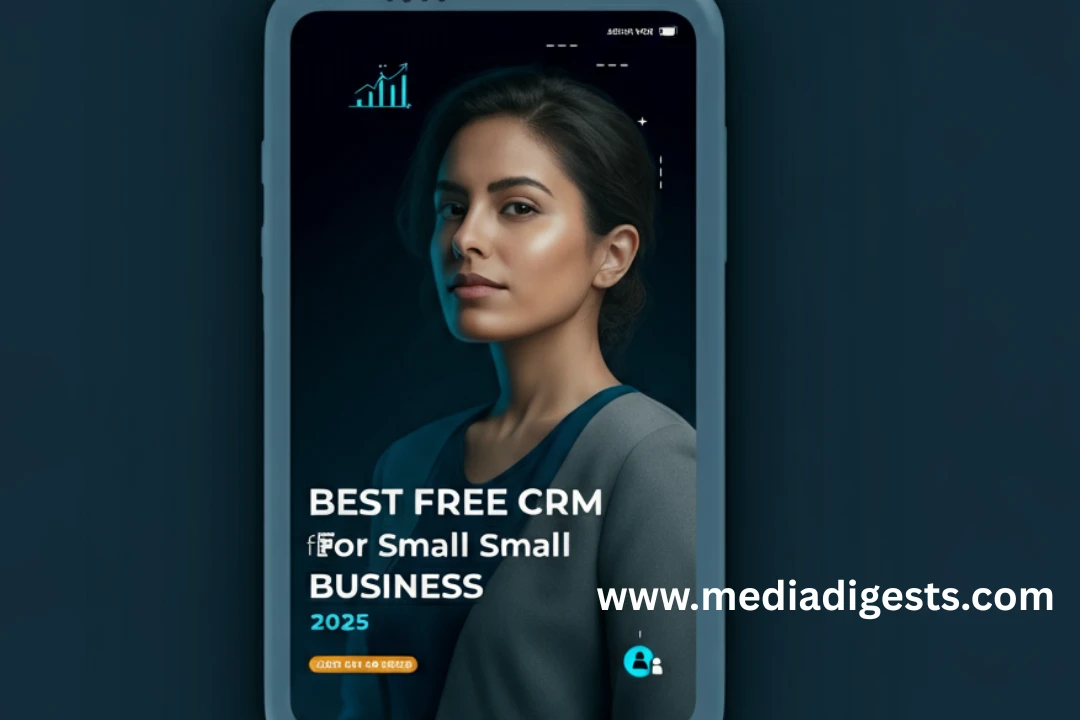If you’re running a small business, you know how important it is to keep track of your customers and leads without spending a fortune. Managing customer relationships isn’t just about making more sales—it’s about building trust, staying organized, and making life easier for your whole team. The good news? You don’t need a big budget to access top-quality tools. With the right free CRM software, small business owners can nurture contacts, keep tabs on conversations, and help their businesses grow—all without dipping into profit margins. In this guide, we’ll break down what matters most for businesses like yours and help you find the best free CRM for small businesses in 2025.
What is a CRM and Why Do Small Businesses Need One?
CRM stands for Customer Relationship Management. It’s a type of software that keeps all your customer info, sales leads, and details about communications neatly in one place instead of scattered between sticky notes, emails, and old files. The main goal? To make sure you never lose track of a lead or forget a follow-up. Whether you’re working solo or with a small team, a CRM can help you focus on what really matters: building real connections with your customers.
Why a CRM Beats Manual Tracking
Most small business owners start out using spreadsheets or even a notepad to track deals and conversations. But as your business grows, things get complicated fast. CRMs automate repetitive tasks, send reminders for follow-ups, and help you spot new sales opportunities with clear pipelines and organized data. This means less time spent on admin and more time talking to customers.
Collaborative Benefits for Teams
Even if you only have a handful of people, collaboration is so much easier with a CRM. Everyone stays on the same page, customer histories are up to date, and teamwork improves simply by having one shared tool.
Key Features to Look for in a Free CRM
Not all free CRM platforms offer the same features. Before you sign up for anything, make sure the basics are covered and that the CRM won’t limit your growth too soon. Here’s what to prioritize:
- Contact Management: Organize names, emails, phone numbers, and every chat or email.
- Sales Pipeline: Visual tools to track where each lead stands, from first hello to happy customer.
- Task Automation: Add follow-up reminders, create to-do lists, and log calls or meetings so nothing falls through the cracks.
- Reporting Tools: Even basic analytics help you see what’s working and where deals get stuck.
Best Free CRM Software for Small Businesses 2025
There are more options than ever for entrepreneurs who want a free CRM system. If you’d like a broad overview of leading solutions, PCMag’s guide to the best free CRM software offers in-depth comparisons to help you decide.
Here are some of the best picks for different business needs in 2025:
- HubSpot CRM: Extremely popular for its ease of use. Their free plan includes contact management, sales pipelines, and email tracking.
- Zoho CRM: Great for businesses needing flexibility, offering lead management, simple sales automation, and up to three users for free.
- Bitrix24: Combines CRM tools with project management, chat, and calendars. Their free version is very comprehensive, but may take a bit of time to learn.
- Freshsales by Freshworks: User-friendly, with free pipeline management, built-in phone, and lead scoring to prioritize hot prospects.
Things to Keep in Mind
Free CRM solutions often have user, feature, or storage limits. Look at what you get today, but also check upgrade prices if your business is growing. Think about whether you want marketing automation, extra integrations, or the ability to add more team members in the future.
How to Set Up Your Free CRM for Success
Getting value from your CRM starts with a smooth setup. Here’s how to lay the groundwork for long-term gains:
- Define your biggest pain points—do you want to keep better notes, follow up quicker, or close more deals?
- Migrate your current contacts and leads so you can start fresh.
- Use built-in wizards and guides; most CRMs offer step-by-step onboarding.
Training Your Team
Don’t forget to bring your team on board from day one. Show everyone the time-saving features and set clear expectations for updating data. A CRM only works if people use it consistently!
Customizing to Fit Your Business
Every small business is unique. Adjust stages in your sales pipeline, add custom fields, and set up simple automations to fit your daily workflow.
Checking the Numbers: Is Your CRM Helping?
After you’ve been using your CRM for a few months, take time to review the impact. Measure things like:
- How many leads are converting to paying customers?
- Is your follow-up process quicker and more reliable?
- Are you seeing fewer missed opportunities and better team communication?
Comparing results from before and after you adopted your CRM will show you what’s working and where to improve.
Conclusion
Free CRM platforms in 2025 have come a long way—many offer enough power and flexibility for most small businesses. The best free CRM for small businesses 2025 will combine contact organization, sales tracking, and smart automation without overwhelming you with costs or complexity. Take time to test out a few options, prioritize features that matter most, and set your business up for long-term success.
Frequently Asked Questions
1. Is free CRM software really enough for a small business?
Absolutely. Most free CRM platforms cover the needs of small businesses, giving you solid tools for customer management, communications, and workflow tracking.
2. How many users can we add to a free CRM?
This depends—some, like HubSpot, are generous with user seats, while others cap you at two or three. Always read the details before making a decision.
3. Will a free CRM lock or delete my data if I don’t upgrade?
Generally no, but always back up your data just in case. You can continue using core features for free, but added perks may require a paid plan.
4. Are free CRMs secure for storing customer information?
Trusted providers use industry-grade security for all users, not just paying ones. To stay safe, choose reputable brands with a proven record in small business CRM security.
5. How quickly can I get started with a free CRM platform?
Most are up and running in under an hour. Importing your contacts and learning the basics are usually straightforward, so you’ll be organizing your customer info and leads on day one.
You may also read: How to Start a Small Business in the USA

